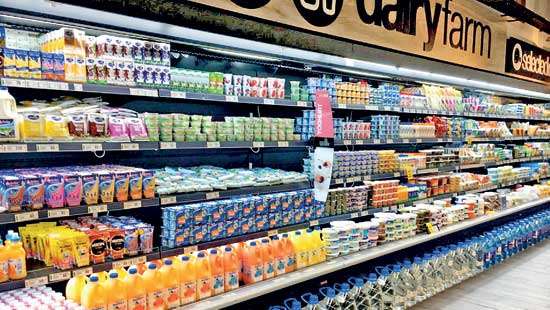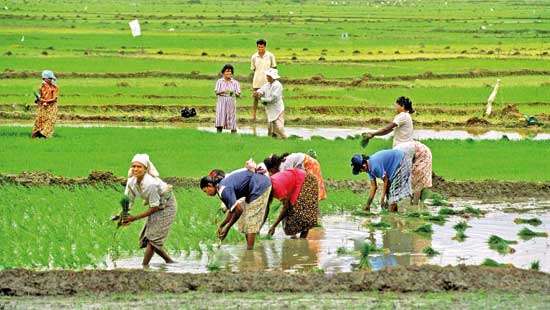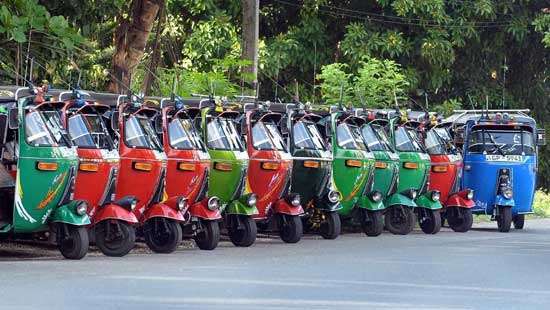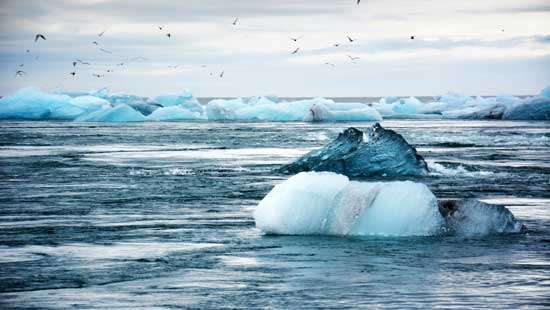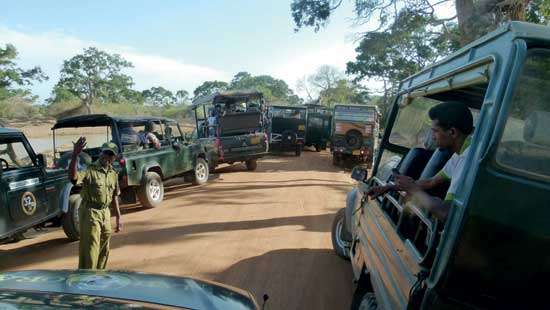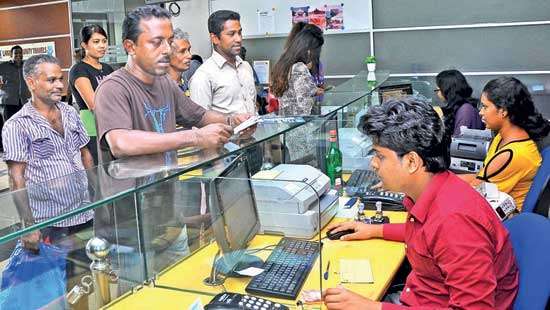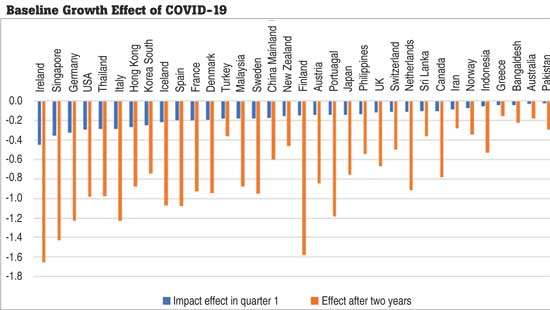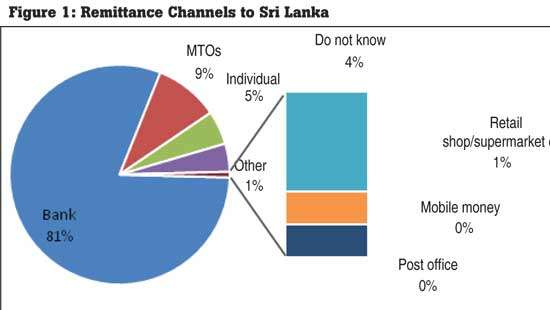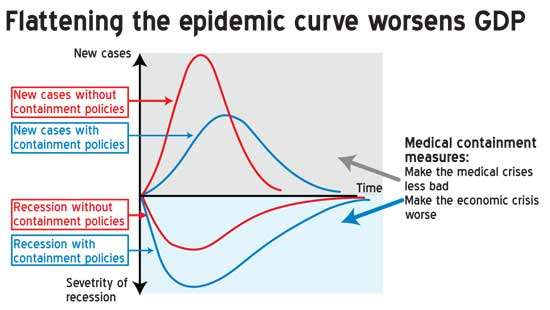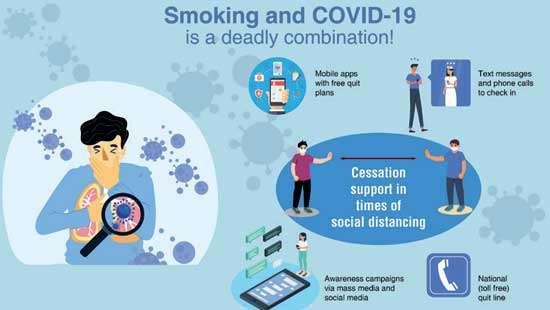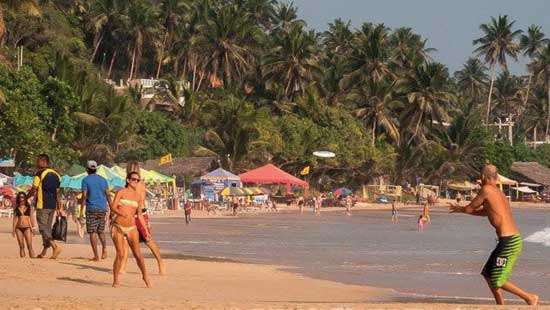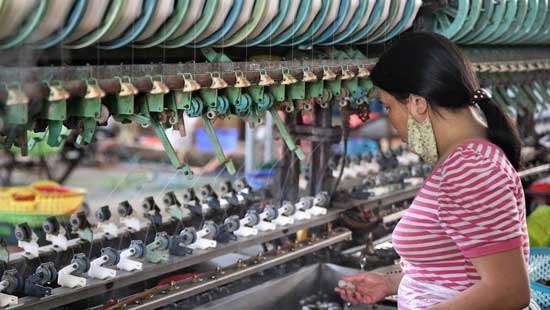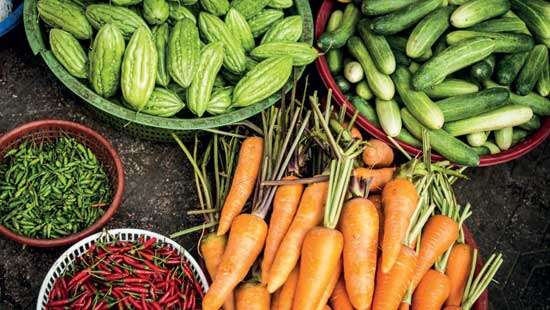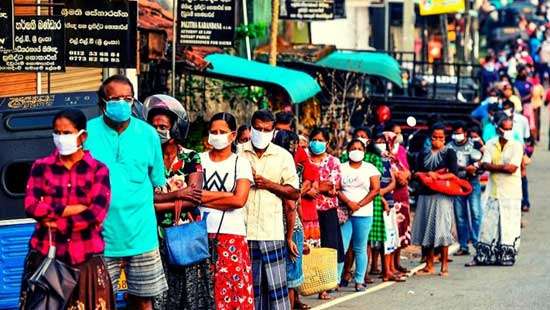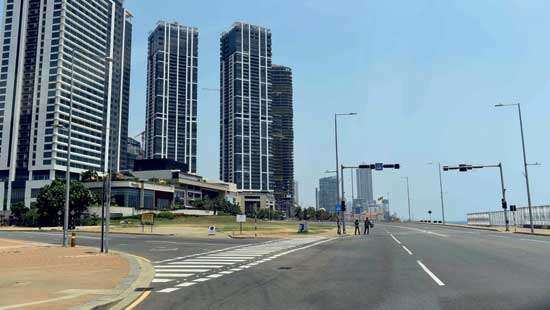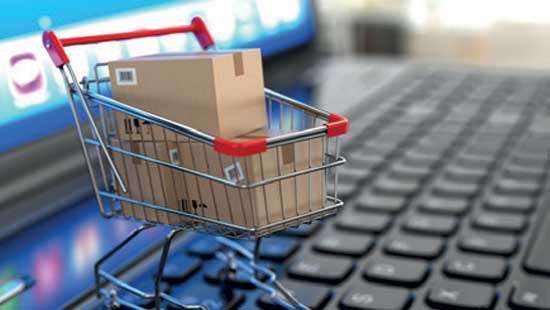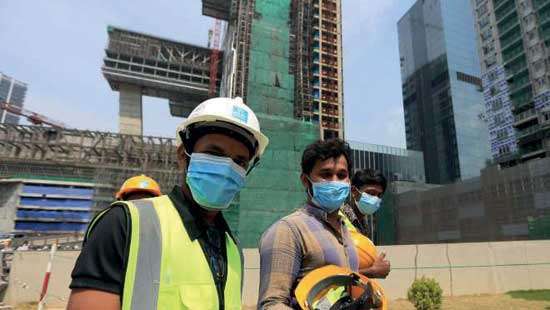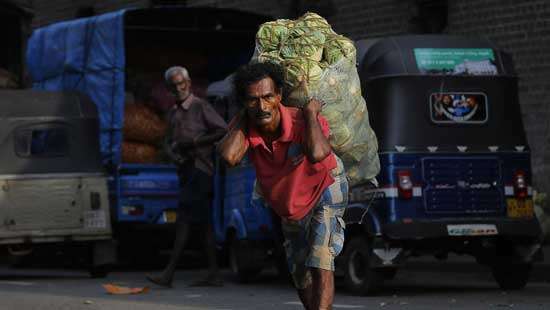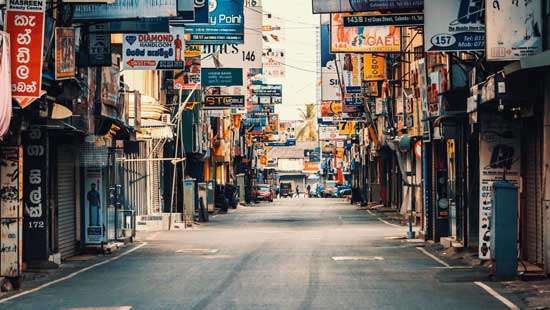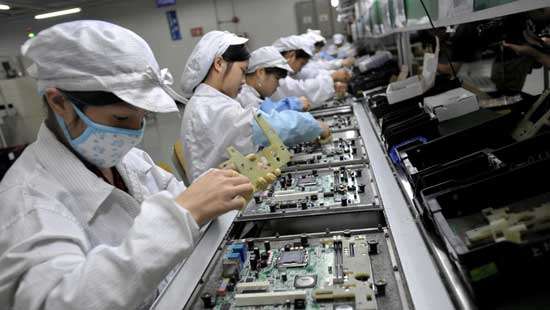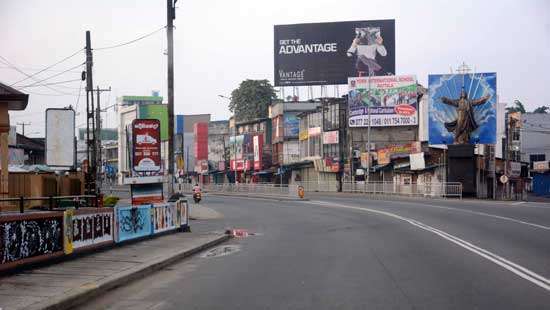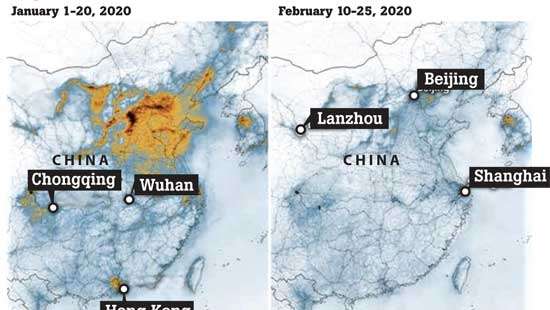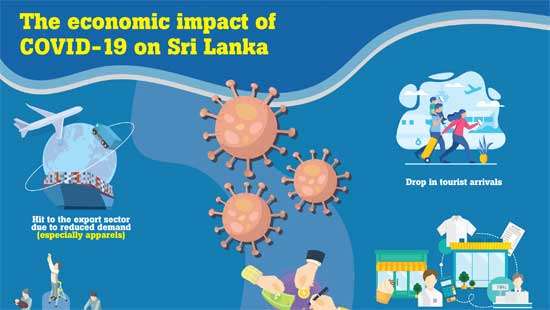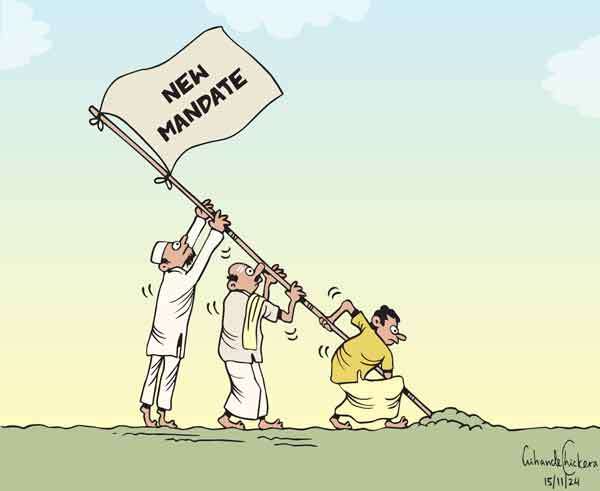Features
Sri Lankans have re-evaluated priorities amidst COVID-19 outbreak: Will brands follow suit?
24 Apr 2020
 0
0
Kantar recently unveiled the COVID-19 Barometer for Sri Lanka through a virtual webinar. The study covers the sentiments of both urban and rural households across all socio-economic groups and age segments.
Managing business through COVID-19 pandemic to transform from a global to a local economy
23 Apr 2020
 0
0
The COVID-19 pandemic has resulted in many countries having lockdowns, mainly to control the spread of the coronavirus. This pandemic, which started in Wuhan, China, has now spread worldwide, with Europe and America experiencing a major impact and huge loss of lives.
COVID-19 and road ahead for Sri Lanka’s three-wheeler industry
22 Apr 2020
 0
0
Sri Lanka has been under curfew since mid-March to contain the spread of COVID-19. As a result, economic activities throughout the country have stalled. A recent Institute of Policy Studies (IPS) blog identified that non-agricultural, informal workers were highly affected by this pandemic.
COVID-19 and foreign exchange woes: Can Sri Lanka find a way out?
18 Apr 2020
 1
1
The growing pressure on Sri Lanka’s scarce foreign exchange resources, due to the wide spread of COVID-19 across the globe, is now more real than ever before. To ease this pressure, the Central Bank of Sri Lanka (CBSL) has taken many measures to attract as well as retain more foreign exchange in Sri Lanka.
ICC’s crusade to safeguard future functioning of global economy
17 Apr 2020
 0
0
International Chamber of Commerce Sri Lanka (ICCSL) Chairman Dinesh Weerakkody speaks about the International Chamber of Commerce’s (ICC) global response to the coronavirus (COVID-19) to provide businesses with hope during these challenging times.
COVID-19 and Sri Lanka’s tourism industry
16 Apr 2020
 1
1
After the April 2019 terrorist attack in Sri Lanka, the Market Development Facility (MDF), an Australian multi-country initiative, launched a series of informative seminars across the country to help the smaller scale hotel companies understand how they could manage the crisis. These programmes were very well received by the SMEs.
Impact of internal and external shocks on Sri Lanka’s foreign exchange earnings
10 Apr 2020
 0
0
Sri Lanka, as a developing country, is highly sensitive to both internal and external shocks. Today, Sri Lanka is facing a big challenge of controlling the spread of COVID-19, which is a global pandemic. Even though Sri Lanka is far better than other developed countries in terms of controlling the spread of this decease, the Government Medical Officers’ Association (GMOA) warns that the situation will worsen in the month of April.
Curfew, lockdown and economic livelihoods amid corona crisis
09 Apr 2020
 0
0
National policymakers have been grappling on the right balance between lockdowns (total or partial) and maintaining a functioning economy to safeguard the livelihood of its citizens and viability of its corporate sector. Whilst no solution seems optimal, the need for a well-orchestrated recovery strategy is central to avoid a pro-longedsupply and demand led economic recession.
Why strangle economy to combat coronavirus?
08 Apr 2020
 1
1
As of April 6, 2020, there are 177 confirmed cases and five deaths attributed to the coronavirus (COVID-19) in Sri Lanka. These are impressive statistics relative to those in many other countries affected by COVID-19. Physical distancing is the key to controlling the spread of the COVID-19 infection and accordingly, the island has been in curfew mode since March 20.
Why strangle economy to combat coronavirus?
08 Apr 2020
 0
0
As of April 6, 2020, there are 177 confirmed cases and five deaths attributed to the coronavirus (COVID-19) in Sri Lanka. These are impressive statistics relative to those in many other countries affected by COVID-19. Physical distancing is the key to controlling the spread of the COVID-19 infection and accordingly, the island has been in curfew mode since March 20.
Significant disruptive potential of coronavirus
08 Apr 2020
 0
0
According to CNN, the coronavirus (COVID-19) is now in 85 countries. This is despite four countries still accounting for 97 percent of COVID-19 cases. The COVID-19 epidemic has now forced nearly one-third of the world’s population into lockdown. It is a fight that many countries will face all the same.
Is downsizing right thing? NCE probes into pros and cons of laying off employees
08 Apr 2020
 0
0
The fact that we live in a truly global economy is impelled every time the world is confronted with a significant disaster affecting millions of lives and world economies. In 2002, when a lethal pneumonia-like virus known as SARS emerged in China, it generated a near catastrophic spillover effect on global trade.
COVID-19 and SMEs: Five important areas to focus on during tough times
01 Apr 2020
 0
0
It is evident that the COVID-19 pandemic would create a significant economic impact globally. Whilst it is rather premature to predict the overall impact, one can safely conclude that the impact will last for a number of months (best-case scenario) post COVID-19.
COVID-19: Economic impacts on Sri Lanka
01 Apr 2020
 0
0
COVID-19 has been rapidly outreaching across the globe, taking thousands of lives and pausing hundreds of economies. Its initial impact on China’s economy is pathetic and China’s slowdown may have adverse economic impacts on the rest of the world as well.
COVID-19 – Nature’s wake up call to mankind?
30 Mar 2020
 0
0
Today, mankind has enabled technological and scientific progress to eradicate diseases, helped increase life expectancy, reduced starvation and extreme poverty, revolutionised transport and communications, explored other worlds in the universe and made this generation the most successful one in history. But at what cost to nature and the environment?
‘A brewing storm’: Economic impact of COVID-19 on Sri Lanka
30 Mar 2020
 0
0
Over a quarter of the world’s population is currently under movement restrictions. For the first time in recent human history, coronavirus has shattered the myth that the economy must come first. While public health concerns, undoubtedly, should take precedence over all other considerations when dealing with the COVID-19 pandemic, it would be unwise to ignore the economic costs of the current situation.

Fonterra to proceed with sale process for Consumer businesses
30 Mar 2020
 0
0

BOI signs US$ 12.16mn deal with Celogen Lanka
30 Mar 2020
 0
0

Nissan to lay off thousands of workers as sales drop
30 Mar 2020
 0
0

EU Ambassador meets new BOI Chief to discuss economic ties
30 Mar 2020
 0
0

SLCERT warns WhatsApp users against sharing OTPs to prevent hacking
30 Mar 2020
 0
0

NPP heading for clear parliamentary majority
30 Mar 2020
 0
0

Police officer, two election officials die while on duty on election day
30 Mar 2020
 0
0


